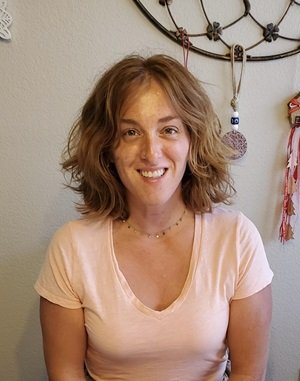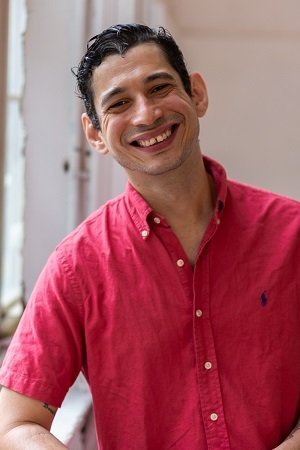The EST/Sloan Project is committed to “challenge and broaden the public’s understanding of science and technology and their impact on our lives.” In that spirit, we offer this essay on the science and history behind Las Borinqueñas, the 2023/2024 Mainstage Production of the Ensemble Studio Theatre/Alfred P. Sloan Foundation in collaboration with the Latinx Playwrights Circle & Boundless Theatre Company. Las Borinqueñas began previews at the Ensemble Studio Theatre on April 3 and ran through May 5.
An essay by Rich Kelley
The United States in the 1950s was an unlikely place to develop the first oral contraceptive. The U.S. Federal Government and 30 states banned birth control. The NIH, the National Science Foundation, and the WHO refused to support reproductive research. Pharmaceutical companies considered testing an oral contraceptive too risky: They would need healthy women of childbearing age as test subjects. Why would those women want to take part?
Birth control activists wanted to fund the development of a “simple, foolproof birth control method,” preferably a pill. They approached Dr. Gregory Pincus, whose work studying fertility had earned him a reputation as something of a “mad scientist.” As a researcher at Harvard, Pincus garnered national attention when he developed the first test tube rabbit embryo. Scare headlines about “fatherless babies” followed and Pincus was denied tenure.
Pincus accepted the challenge to develop a birth control pill. He focused his research on progesterone, “nature’s contraceptive.” When an egg is fertilized, progesterone prepares the uterus for implantation and shuts down the ovaries, so no more eggs are produced. Could progesterone be put into a pill, effectively tricking a woman’s body into thinking it was pregnant?
Pincus began doing animal studies using synthetic progesterone with promising results. For the first human tests, he partnered with Dr. John Rock. Rock had been working on curing infertility by injecting women with progesterone and estrogen to pause ovulation and allow the reproductive system to reset. In one study, after stopping the hormones, 13 of 80 patients became pregnant within four months, an effect gynecologists called the "Rock rebound." At Pincus's suggestion, Rock tried the same experiment with the new oral contraceptive, with similar success.
For their first large-scale clinical trial, Pincus and Rock chose Puerto Rico, where the population had surged by 18% in a decade, a growth which caused concern among American politicians and activists (often, but not always, motivated by xenophobia and racism) as well as some of the Puerto Rican upper classes. Unlike the mainland U.S., birth control was legal in Puerto Rico. Sixty-seven family planning clinics promoted the rhythm method, provided diaphragms, spermicides, or condoms, and also referred patients to hospitals for sterilization. Many physicians and reformers believed sterilization was the solution to population control. Hospitals had policies urging maternal patients to have la operación after delivery; some required it after the third child. One survey in 1953-54 found that 40% of all women who had practiced some form of contraception had had la operación. But Puerto Rican women were often not informed by their doctors that sterilization is permanent.
Oral contraceptive trials began in Rio Piedras in 1956, directed by American Dr. Edris Rice-Wray and Puerto Rican social worker Iris Rodriguez. They selected a group of 100 women and a control group of another 125. Participants had to be under 40 and must have already had two children to ensure fertility. The trial targeted economically disadvantaged women in Puerto Rico, who were often marginalized and lacked access to adequate healthcare. Many of these women were not adequately informed about the potential risks and benefits of the pill. Some were not aware that they were participating in a clinical trial and taking an experimental drug.
Rice-Wray gave each woman a 20-day supply of the pills, known as Enovid. "When the bottle is over and you start menstruating," she told her participants, "you count one, two, three, on your fingers, and when you have counted all your fingers, that is the time to start again" on a new bottle. If birth rates went down among participants taking Enovid compared with those in the control group, the pill could be deemed effective.
The pills used in the first trials contained an extremely high dose of hormones: more than 10 times the average dose of the pill today. Many participants experienced extreme, sometimes debilitating, side effects. Rice-Wray recorded her findings: among the first 221 women in the study, about 17% had negative reactions and 25 withdrew because of those reactions. There were complaints of dizziness, nausea, headaches, vomiting, and abdominal pain. Pincus considered most of these psychosomatic. Some women reported severe complications, such as blood clots and strokes. The high incidence of adverse reactions raised concerns about the safety of the pill and the adequacy of monitoring and oversight during the trial. Even more troubling, three women died during the trials, but because there were no autopsies, it was never learned if the pill was a factor in their deaths. After the trial concluded, there was limited follow-up and long-term monitoring of the participants to assess the lasting effects of the contraceptive pill.
By the end of 1958, more than 800 women had enrolled in tests of the pill, but only 130 had taken it for a year or more. To disguise this shortfall, Pincus presented his data in terms of the number of menstrual cycles instead of the number of women. "In the 1,279 menstrual cycles during which the regime of treatment was meticulously followed,” Pincus wrote, “there was not a single pregnancy.” 1,279 menstrual cycles sounded more impressive than 130 women.
In 1957, the FDA approved pharmaceutical giant Searle’s application for Enovid as a treatment for menstrual disorders and infertility. The FDA finally approved Enovid as a contraceptive in May 1960. By 1965, more than 6.5 million married women and an untold number of unmarried women in the U.S. were using the pill.
The introduction of the birth control pill marked a revolutionary turning point in women's reproductive rights, societal roles, and economic empowerment. With the ability to control when and if they became pregnant, women gained unprecedented freedom to make decisions about their bodies and futures. This autonomy extended beyond family planning to encompass educational pursuits, career advancement, and personal fulfillment and to challenge traditional gender roles and patriarchal structures. According to data from the U.S. Bureau of Labor Statistics, the labor force participation rate of women aged 25 to 54 in the United States increased from 34.9% in 1950 to 60% in 1999. Data from the U.S. Census Bureau shows that the gender wage gap narrowed from 60% in 1960 to 75% in 2020.
By enabling women to control their fertility and delay childbirth, the pill has reduced maternal and infant mortality in countries with high fertility rates and has empowered women to pursue higher education and increased women’s labor force participation worldwide. Yet, according to the World Health Organization (WHO), an estimated 214 million women of reproductive age in developing regions have an unmet need for modern contraception, highlighting the persistent barriers to access.
Today, about 10 million women in the U.S. use the pill, and 13 million have undergone sterilization. However, in 2016, 40% of Puerto Rican women of childbearing age who used birth control had been sterilized, while less than 10% surveyed used an oral contraceptive. During the Zika outbreak of that year, a temporary CDC assistance program made many forms of birth control available for free and included a broad education campaign to inform women of the opportunity. During that program, there was a surge in women accessing birth control, suggesting that price and information access are both factors that continue to make birth control less accessible to Puerto Rican women today.
Resources:
Briggs, Laura. Reproducing Empire: Race, Sex, Science, and U.S. Imperialism in Puerto Rico. University of California Press, 2002.
Eng, Jonathan. The Birth of the Pill: How Four Crusaders Reinvented Sex and Launched a Revolution. W. W. Norton & Company, 2014.
Garcia, Ana Maria, La Operación documentary, 40 minutes. Latin American Film Project, 1982.
Lankford, Kathryn. More than a Way Station: Ground-Level Experiences in the Field Trials of Oral Contraceptives and IUDs in Puerto Rico, 1956-1966 (Ph.d dissertation, 2021)
Ramirez de Arellano, Annette, and Conrad Seipp. Colonialism, Catholicism, and Contraception: A History of Birth Control in Puerto Rico. The University of North Carolina Press, 1983.
Speroff, Leon. A Good Man, Gregory Goodwin Pincus: The Man, His Story, the Birth Control Pill. Arnica Publishing Inc., 2009.
Tone, Andrea. Devices and Desires: A History of Contraceptives in America. Hill & Wang, 2001.
World Health Organization, “Contraception”













































